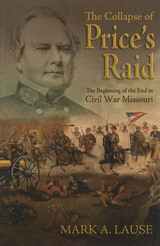
Through the centuries, at the heart of Catholic moral theology is a fundamental question: How do we behave responsibly in the face of moral uncertainty? Attempts to resolve problems of everyday life led to the growth of a variety of moral systems, one of which emerged in the early 17th century and was known as "probabilism." This method of solving difficult moral cases allowed the believer to rely upon a view that was judged defensible in terms of its arguments or the authorities behind it, even if the opposite opinion was supported by stronger arguments or more authorities. The theologian Juan Caramuel, a Spanish Cistercian monk whom Alphonso Liguori famously characterized as "the prince of laxists," has been regarded as one of the more extreme—and notorious—proponents of probabilism. As the only full-length English study of Caramuel's theological method, Defending Probabilism seeks to reappraise Caramuel's legacy, claiming that his model of moral thinking, if better understood, can actually be of help to the Church today.
Considered one of the most erudite theologians of his age, a scientist and scholar who published works on everything from astronomy and architecture to printing and Gregorian chant, Caramuel strove throughout his life to understand probabilism's theological and philosophical foundations as part of his broader analysis of the nature of human knowledge.
In applying Caramuel's legacy to our own time, Defending Probabilism calls for a reconsideration of the value of provisional moral knowledge. Fleming's study shows that history matters, and that to attain any position on moral certitude is a difficult and painstaking process.

Since the founding of the discipline, sociologists have endeavored to understand the structures of groups, organizations, and societies, and how these entities condition our behavior. While some of the foundational theorists saw these processes as largely deterministic, sociological theory has increasingly insisted on the importance of culture in shaping our position in and responses to social groups. In Orienting to Chance, sociologists Michael Strand and Omar Lizardo aim to show that the social order bears an unmistakable link to chance and urge us to think about how it conditions our actions.
Strand and Lizardo provide a sweeping overview of a new social theory framework that they call probabilism. Using examples of probabilism in sociology, particularly in the work of Max Weber, W. E. B. Du Bois, and Pierre Bourdieu, they describe probabilism’s place in multiple fields of science. As the authors argue, their effort at redefinition and recovery helps position sociology as a field of the future, while also keeping it grounded in core issues of action, structure, culture, inequality, and inequity. By sharing these groundbreaking insights and revealing wider theoretical claims about mortality, fate, and technology in the contemporary era, Strand and Lizardo demonstrate how probabilism is an essential intervention for understanding the inevitable role of uncertainty in social life.
READERS
Browse our collection.
PUBLISHERS
See BiblioVault's publisher services.
STUDENT SERVICES
Files for college accessibility offices.
UChicago Accessibility Resources
home | accessibility | search | about | contact us
BiblioVault ® 2001 - 2025
The University of Chicago Press









